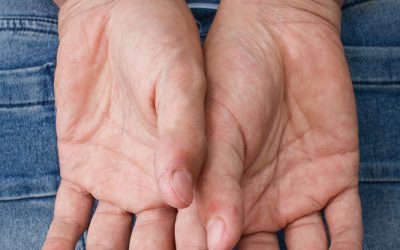Content
He added that the information could help in identifying youngsters at risk of becoming alcoholics and could lead to early prevention efforts. A study was done in which scientists selectively bred two strains of mice. The study included mice that were not genetically sensitive to alcohol and those that were acutely sensitive to it. The two strains showed dramatically different behavior when exposed to identical amounts of alcohol.
Is depression passed down?
Heritability is probably 40-50%, and might be higher for severe depression. This could mean that in most cases of depression, around 50% of the cause is genetic, and around 50% is unrelated to genes (psychological or physical factors).
Many people who experience these side effects avoid alcohol, which helps decrease their risk of developing alcohol use disorder. If you have an increased risk of an alcohol use disorder, you can get a treatment program as we also offer an outpatient program for part-time hospitalization. It is not that you will automatically start to drink alcohol and get a hangover, but it’s like you’d get more into substance use dependency than others. The ailment can be treated with the help of psychotherapy and other alcohol addiction treatment programs.
Twin Falls Outpatient Drug & Alcohol Treatment
You can also develop strategies for managing stress and other triggers that may lead you towards drinking too much or indulging in binge drinking. Many studies related to the children of alcoholic parents show there are genetic factors that influence alcoholism. In fact, some studies found that approximately 45% to 65% of risks related to alcoholism may be caused by genetic factors. These studies show that children with a family history of alcohol addiction are twice as likely as the general population to suffer from alcohol-related issues.
Alcohol metabolism is linked to hereditary prospects as some people get allergic reactions and health repercussions after consuming alcohol. If you think you have become addicted to alcohol, you may want to make an appointment for an assessment with a reputable addiction treatment provider. Completing an evaluation and receiving an accurate diagnosis are two vital steps on the path toward treatment and recovery. But as we have discussed in this section, that doesn’t mean that addiction to alcohol is solely a genetic concern. According to research conducted by the University of Texas at Austin, there may be a whole network of genes at least partially responsible for alcoholism.
Other Influences on Alcoholism
Tolerance is also affected by how much and how often a person drinks. These behaviors can be impacted by a person’s sober house genes as well as their environment. Do genetics play a large role in developing alcohol use disorder?

A person with a genetic disease has an abnormality in their genome; an individual with a hereditary disease has received a genetic mutation from their parents’ DNA. In these situations, your hereditary behaviors interact with your environment forming the basis of your decisions. If you are more prone to stress, this can make it harder to deal with unhealthy environmental risks, leading you to turn to alcohol to cope. It’s important to remember that while you can’t be born with alcoholism, the likelihood is still much higher than someone who is not predisposed.
Meta Addiction is a wonderful facility with highly trained staff.
Being exposed to alcohol at an early age can normalize it, and having an absence of positive parental guidance can leave the door open to dangerous self-discovery. Have a confidential, completely free conversation with a treatment provider about your financial options.
- Among identical female twins, there was a 30 percent likelihood.
- No, you are not destined to become an alcoholic just because your parents were an alcoholic.
- Some of these genes control things like eye color, height, and hair color.
- It needs to be emphasized that there is no “gene for alcoholism.” Both social and environmental factors contribute to the outcome.
For those with two alcoholic parents, 60-65% will be likely to have it. It’s been discovered that there is a 50% chance of a person having the predisposition to develop an addiction to alcohol if they have someone in their family suffering from alcoholism. If you have someone in your family who is struggling, you may wonder if you’ll develop alcoholism as well. And if you do develop alcoholism, know that you can get better. Keep track of your daily basis, ask yourself – are my drinking habits safe or risky?